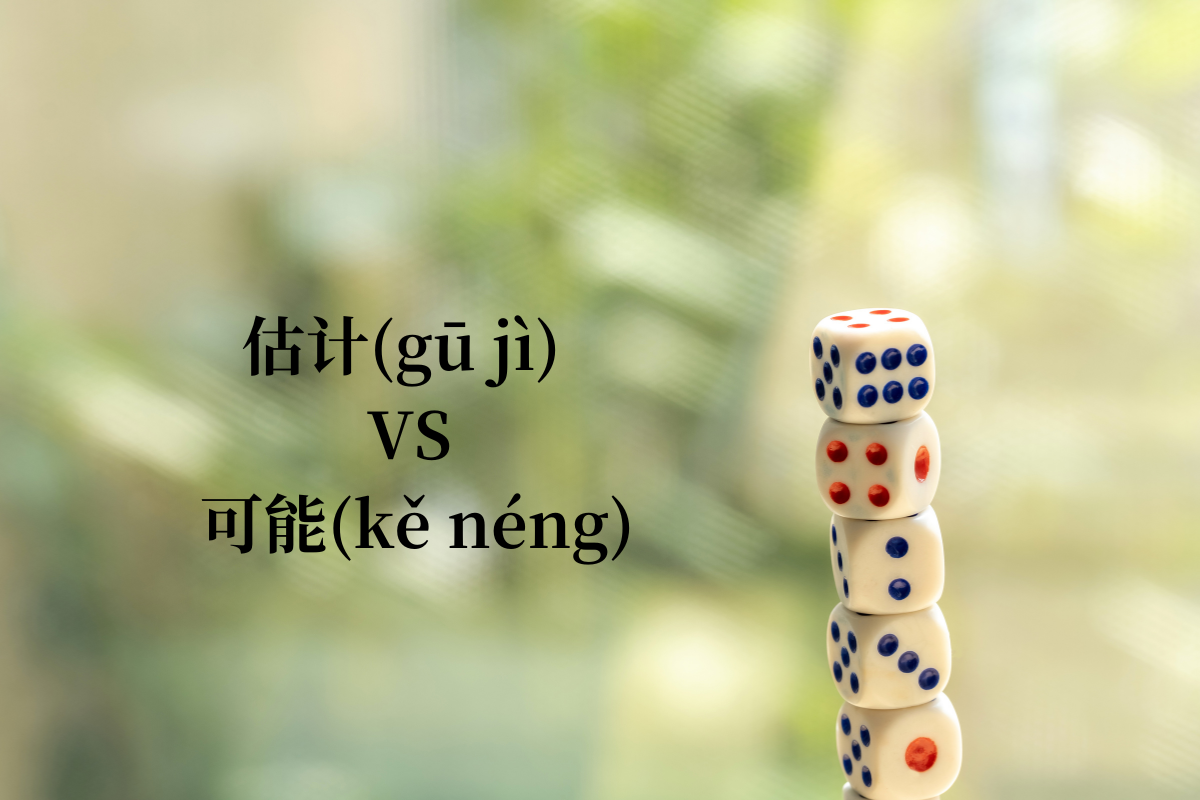HSK 4 Words: 估计 (gū jì) VS 可能 (kě néng)
Two such words are 估计(gū jì) and 可能(kě néng). While these two terms may seem interchangeable at first glance, their usage and connotations are distinct. Understanding the subtle differences between 估计(gū jì) and 可能(kě néng) is crucial for accurate communication in Chinese. In this article, we will explore the intricacies of these two HSK terms, delving into their meanings, contexts, and usages to help you navigate the complexities of this often-confused pair.

估计 (gū jì) typically implies a cautious estimation or guess based on limited information. It can be used when making a prediction or estimation about something, often with some uncertainty.
Examples:
- I estimate that he can complete this project tomorrow.
我估计他明天能完成这个项目。
wǒ gū jì tā míng tiān néng wán chéng zhè gè xiàng mù 。 - I estimate that it will take one week for this matter.
我估计这件事需要一个星期的时间。
wǒ gū jì zhè jiàn shì xū yào yí gè xīng qī de shí jiān 。 - The police estimate was completely accurate.
警方估计完全准确。
jǐng fāng gū jì wán quán zhǔn què 。
可能 (kě néng), on the other hand, implies a possibility or chance that something could happen. It is often used to express uncertainty or a possibility based on conditions or circumstances.
Examples:
- It may rain tomorrow.
明天可能会下雨。
míng tiān kě néng huì xià yǔ 。 - This matter may occur.
这件事有可能发生。
zhè jiàn shì yǒu kě néng fā shēng 。
In summary, 估计 (gū jì) and 可能 (kě néng) are two distinct words in Chinese. 估计 (gū jì) implies a cautious estimation or guess, while 可能 (kě néng) suggests a possibility or chance.
Quiz: Please consider whether to use 估计 (gū jì) and 可能 (kě néng) in the following sentences.
- 我的______完全准确。
wǒ de ______ wán quán zhǔn què 。 - ______地球的年龄大约为46亿年。
______ dì qiú de nián líng dà yuē wéi 46 yì nián 。 - 酗酒______引起胃病。
xù jiǔ ______ yǐn qǐ wèi bìng 。
Answers:
- 估计 (gū jì)
- 估计 (gū jì)
- 可能 (kě néng)